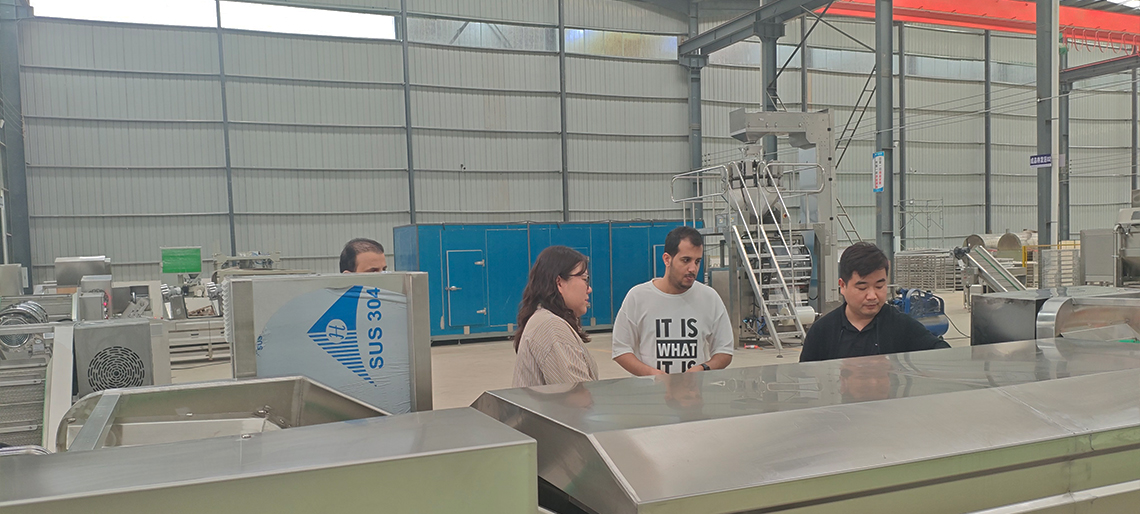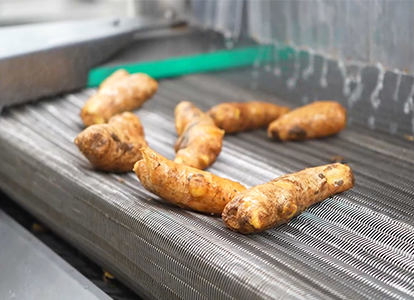Introduction
I. Background and Challenges
The Dominican Republic, as a key agricultural country in the Caribbean, has a well-developed vegetable farming industry, including cabbage. However, post-harvest processing has long relied on manual cleaning, resulting in low efficiency, high costs, and difficulty in meeting hygiene standards. Local entrepreneur Juan Carlos identified this market gap and decided to import an automated cabbage cleaning production line from China’s Weixin Machinery. However, he faced the following challenges:
- High initial investment cost, requiring quick capital recovery;
- Low labor costs but limited automation adoption locally, necessitating market education;
- How to enhance the added value of the production line through differentiated operations.
II. Weshine Machinery’s Solution
Weixin Machinery provided Juan Carlos with a tailored “technology + operations” package:
1. Equipment Selection and Local Adaptation
- Modular cabbage cleaning line, including sorting, bubble washing, spray sterilization, and air-drying functions, adapted to the Dominican Republic’s hot and humid climate;
- Equipped with low-energy water pumps and solar power compatibility to reduce high electricity costs;
- Provided Spanish operation manuals and on-site engineer training for rapid deployment.
2. Strategies for Economic Benefits Enhancement
- Diverse Customer Coverage:
- B2B Partnerships: Signed long-term contracts with local supermarkets and school cafeterias for pre-washed cabbage at a 15% premium (backed by hygiene certifications);
- B2C Expansion: Launched “ready-to-cook” pre-washed cabbage in small packages, marketed via social media with a “save water and time” appeal to young families.
- Shared Capacity Model:
Offered cleaning services to small farms during idle production hours, charging per volume to maximize equipment utilization. - Policy Incentives Utilization:
Assisted in applying for the Dominican Ministry of Agriculture’s “Agricultural Mechanization Subsidy” and EU HACCP certification to reduce compliance costs.
3. Joint Brand Marketing
- Weixin Machinery and Juan Carlos co-hosted an “open house” event, inviting government officials and media to showcase the automated cleaning process, reinforcing the “food safety” image;
- Short videos demonstrating how the line reduced cleaning time from 2 hours to 10 minutes went viral, attracting farmer interest.
III. Results and Benefits
- Faster ROI: Break-even achieved in 6 months, 3 months ahead of schedule;
- Market Share Growth: Juan Carlos’ company captured 40% of the local pre-washed vegetable market and expanded exports to neighboring island nations;
- Social Impact: Created 12 technical jobs and indirectly supported income growth for 200 farmers.
IV. Key Takeaways
Weshine Machinery’s success hinged on:
- Deep Localization: Tailoring equipment and strategies to Dominican market needs;
- Value Chain Expansion: Helping clients unlock revenue streams beyond equipment sales, such as cleaning services and brand premium;
- Long-Term Partnership: Regular follow-ups to optimize efficiency, fostering word-of-mouth referrals.
Conclusion: Amid the global trend of agricultural mechanization, Weixin Machinery’s “hard technology + soft service” model helped Juan Carlos become a benchmark in the Dominican pre-washed vegetable industry, offering a replicable blueprint for Chinese machinery’s global expansion.







